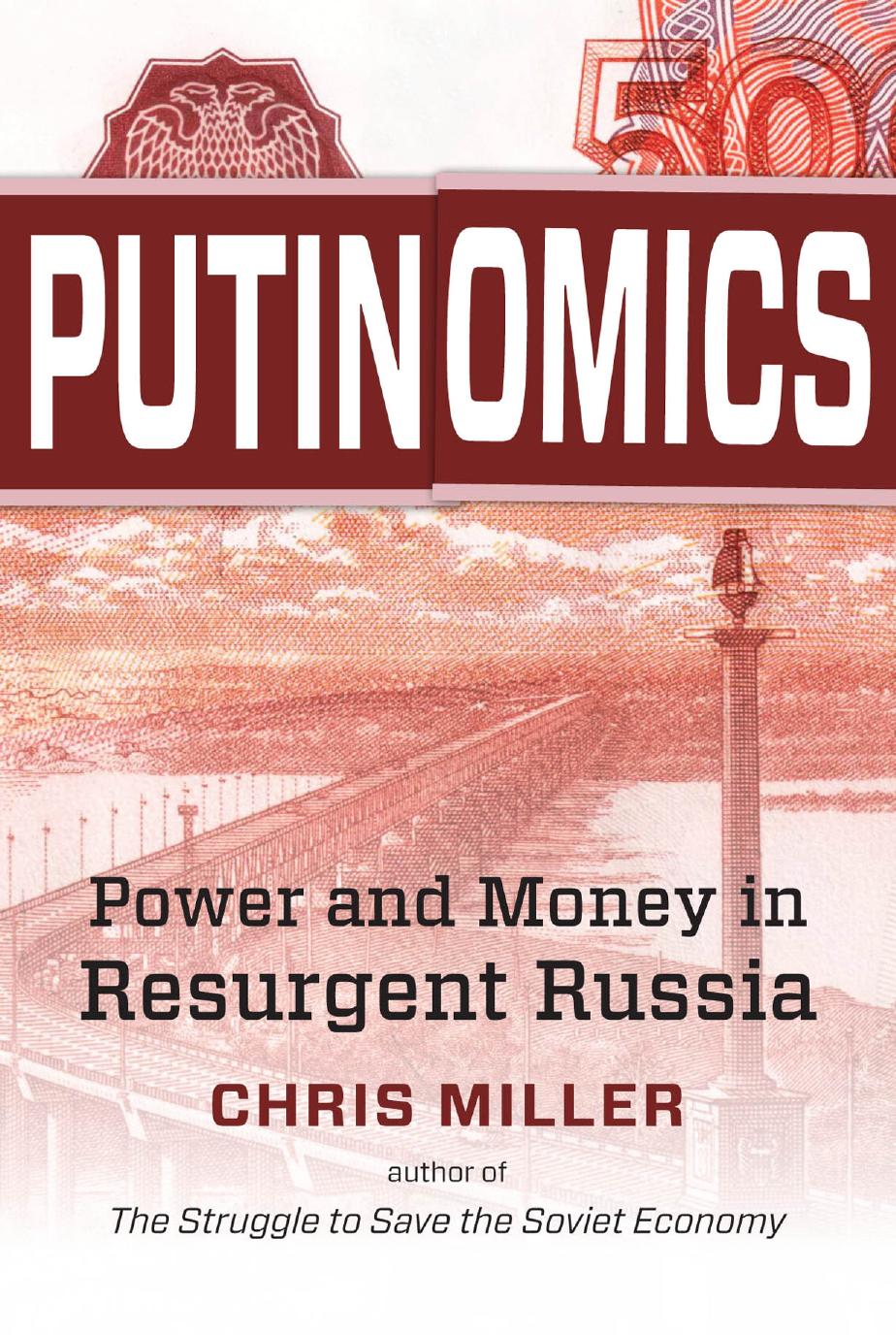Putinomics: Power and Money in Resurgent Russia by Chris Miller

Author:Chris Miller
Language: eng
Format: epub, pdf
Tags: 21st Century, Economic Policy, Foreign Affairs, History, Political Science, Politics & Government, Public Policy, Russia & the Former Soviet Union
Publisher: University of North Carolina Press
Published: 2018-02-08T03:00:00+00:00
Reforming the Soviet Safety Net
Russia did not inherit from the Soviet Union what we would call a “welfare state.” The system of retirement security, subsidized health care, education, antipoverty programs, and disability benefits that governments in advanced economies provide to their citizens was only partially developed in the USSR. Rather than the government providing such social programs, the Soviet state relied on enterprises—from car factories to food processing facilities—to ensure that their employees were well provided for. In a system in which enterprises were fully owned by the government, the distinction between state provision and company provision might seem irrelevant. In the postcommunist period, however, companies’ role in welfare provision shaped the development of Russia’s social programs. Unlike under communism, independent Russia encouraged loss-making firms to declare bankruptcy and shut down. This was a sensible policy in terms of shifting resources away from wasteful uses—of which there were many in the Soviet period—toward productive purposes. The ability to allocate resources efficiently was one of the main reasons Russia adopted a market economy.
In addition to decreasing waste, however, bankruptcies threatened the social contract that had underpinned Soviet labor. Individual firms provided services from kindergartens to subsidized food. When firms shut down, so too did the kindergartens, which lacked resources to survive on their own. Governments were unprepared to fill the gap—and the persistent budget deficits of the 1990s left little money to fund new social programs.
Russia also inherited from the Soviet Union a wide array of in-kind benefits to various groups. Most of these in-kind benefits were structured as discounts on services, from cheaper electricity for veterans to free train tickets for police. These benefits did not appear as a cost on the government budget, though the price in terms of lost revenue was real. In the early 2000s, as Russia’s improving financial position let government officials think about restructuring the social support system, replacing these in-kind benefits with a safety net of the type that most advanced economies used was high on the to-do list.
The idea of scrapping in-kind benefits was sensible. The benefits were targeted toward three main groups: the disadvantaged (“orphans, the disabled and the elderly without pensions”); certain types of workers (veterans, laborers in dangerous industries); and government employees. Most governments provide benefits to the first group, and to a certain extent to the second. For the third group—government employees—in-kind benefits functioned as a disguised pay raise.26
Within these three broad categories of recipient, however, were dozens of variations. Over 230 categories of people were eligible for at least one benefit, and over 150 types of benefits were offered.27 Half of households included a member with at least one such privilege.28 A study by the World Bank estimated that the total cost of these discounts and benefits constituted 4.2 percent of GDP, about what Russia’s government spends on education.29 The system was vast but wasteful. For one thing, it was ineffective at helping the poor. Many well-off families received benefits, but many who were poor did not. In the early 2000s, 90 percent of social spending was not targeted based on income.
Download
Putinomics: Power and Money in Resurgent Russia by Chris Miller.pdf
This site does not store any files on its server. We only index and link to content provided by other sites. Please contact the content providers to delete copyright contents if any and email us, we'll remove relevant links or contents immediately.
| Arms Control | Diplomacy |
| Security | Trades & Tariffs |
| Treaties | African |
| Asian | Australian & Oceanian |
| Canadian | Caribbean & Latin American |
| European | Middle Eastern |
| Russian & Former Soviet Union |
The Secret History by Donna Tartt(16624)
The Social Justice Warrior Handbook by Lisa De Pasquale(11489)
Thirteen Reasons Why by Jay Asher(7788)
This Is How You Lose Her by Junot Diaz(5773)
Weapons of Math Destruction by Cathy O'Neil(5037)
Zero to One by Peter Thiel(4824)
The Myth of the Strong Leader by Archie Brown(4789)
Promise Me, Dad by Joe Biden(4447)
Beartown by Fredrik Backman(4419)
Stone's Rules by Roger Stone(4416)
How Democracies Die by Steven Levitsky & Daniel Ziblatt(4399)
The Fire Next Time by James Baldwin(4343)
100 Deadly Skills by Clint Emerson(4079)
A Higher Loyalty: Truth, Lies, and Leadership by James Comey(4033)
Rise and Kill First by Ronen Bergman(4012)
The David Icke Guide to the Global Conspiracy (and how to end it) by David Icke(3883)
The Farm by Tom Rob Smith(3872)
Secrecy World by Jake Bernstein(3782)
The Doomsday Machine by Daniel Ellsberg(3731)
